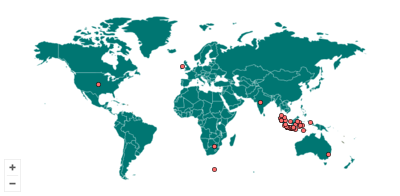THE CONCEPT OF FRANCHISING IN THE INDONESIAN’S CIVIL LAW AND ISLAM
DOI:
https://doi.org/10.22373/al-mudharabah.v5i2.3409Keywords:
Concept, Copyrights, Franchise, Islam, WaralabaAbstract
The franchise concept is an agreement between the franchisor and the franchisee. This means that the franchisor, as the patent owner of the trademark, has the right to receive a certain amount of royalties or fees to be paid by the franchisee based on legal provisions. Franchise agreements are regulated in Indonesian civil law with regard to special rights to trademarks. While in Islamic law, the franchise agreement is actually a development of a form of cooperation (syirkah). This research uses the library research method, where data sources come from laws and other secondary data. The results of this study indicate that a franchise agreement under civil law, which refers to Article 4 of Government Regulation No. 42 of 2007 on Franchising, states that every franchise agreement of any kind must be made in writing by the parties. The existence of a franchise agreement is an innominaat contract. Innominaat contracts are contracts that arise, grow and develop in practice. From the perspective of Shari'ah economic law, franchise agreements belong to the group of shirkah (partnership) and the law is permissible. In addition, the franchise agreement involves the cooperating parties, namely the franchisor and the franchisee. Meanwhile, the franchisor's capital consists of intellectual rights in the form of company names, logos, systems and methods, which are owned and developed by the franchisor.
Downloads
Published
How to Cite
Issue
Section
License
Copyright (c) 2023 Al-Mudharabah: Jurnal Ekonomi dan Keuangan Syariah

This work is licensed under a Creative Commons Attribution-NonCommercial-ShareAlike 4.0 International License.












